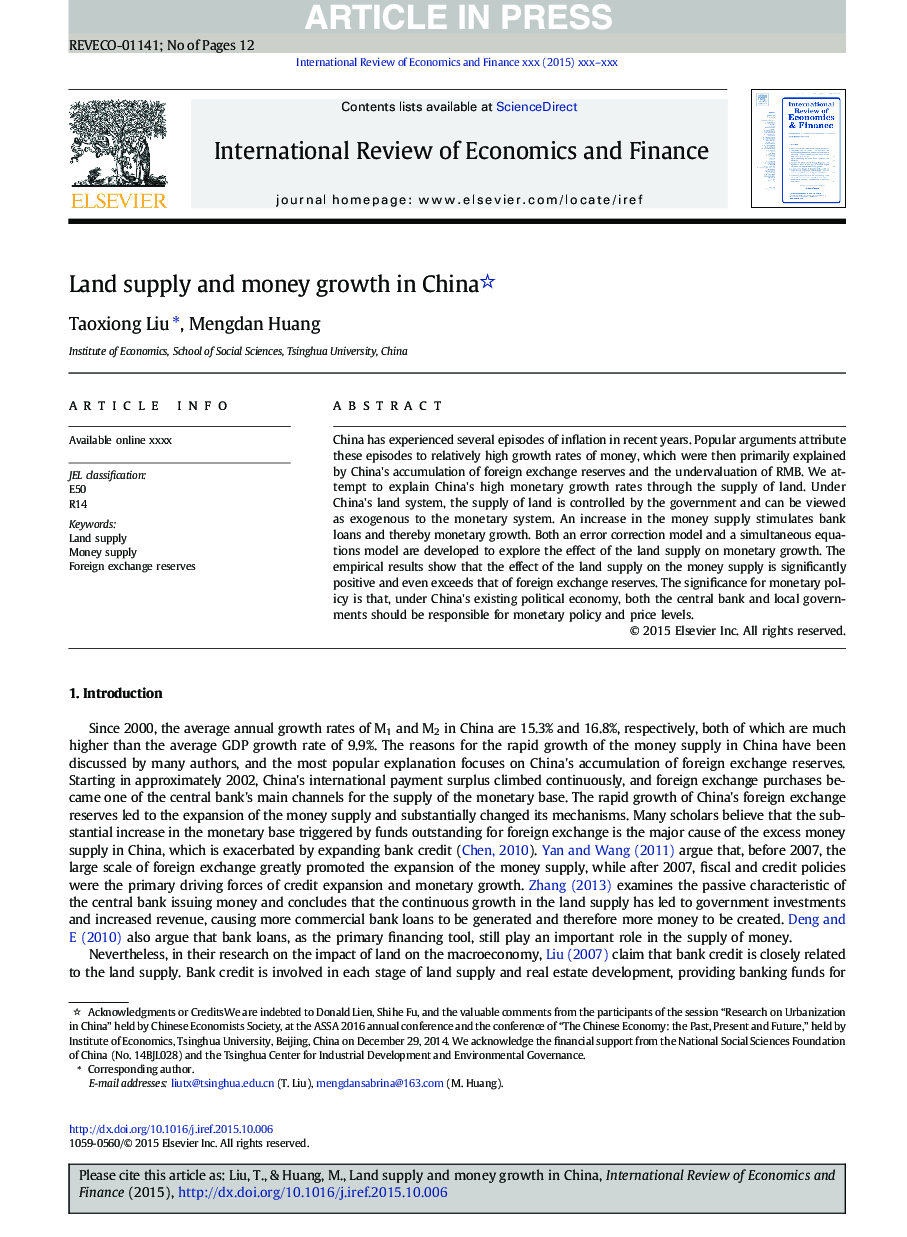| Article ID | Journal | Published Year | Pages | File Type |
|---|---|---|---|---|
| 5083153 | International Review of Economics & Finance | 2016 | 12 Pages |
Abstract
China has experienced several episodes of inflation in recent years. Popular arguments attribute these episodes to relatively high growth rates of money, which were then primarily explained by China's accumulation of foreign exchange reserves and the undervaluation of RMB. We attempt to explain China's high monetary growth rates through the supply of land. Under China's land system, the supply of land is controlled by the government and can be viewed as exogenous to the monetary system. An increase in the money supply stimulates bank loans and thereby monetary growth. Both an error correction model and a simultaneous equations model are developed to explore the effect of the land supply on monetary growth. The empirical results show that the effect of the land supply on the money supply is significantly positive and even exceeds that of foreign exchange reserves. The significance for monetary policy is that, under China's existing political economy, both the central bank and local governments should be responsible for monetary policy and price levels.
Related Topics
Social Sciences and Humanities
Economics, Econometrics and Finance
Economics and Econometrics
Authors
Taoxiong Liu, Mengdan Huang,
